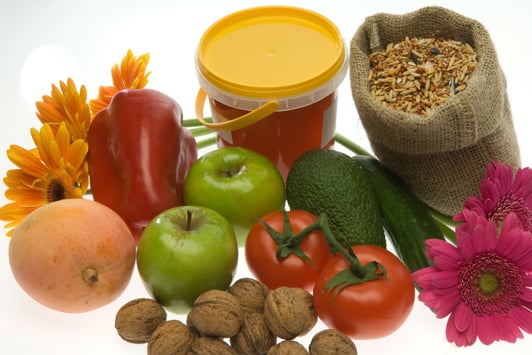For propagatable plants and plant products to be allowed entry into WA they must be listed as permitted on the Western Australian Organism List (WAOL).
Western Australian Organism List
Once you have determined the plant or organism is permitted, complete the Quarantine WA Import Requirements Search for any conditions of entry relating to the product.
Quarantine WA Import Requirements Search
In most instances, plants and plant products will require chemical treatments and plant health certification issued by the exporting state’s quarantine body, or by a business that operates under an approved certification scheme.
For parcel freight and postal items, the outside of all packages should be clearly marked for ‘WA Quarantine’ attention. After inspection by a Quarantine Inspector, all packages will have obvious signs of having been opened and should be clearly marked with ‘Passed quarantine’ tape.
If you receive your order by mail or other delivery method and there is no obvious sign that an inspection has been carried out, you should keep the consignment contained and contact Quarantine WA to organise an inspection.
Inspection fees may apply to your import though many suppliers have arranged for a special charging arrangement and will accept inspection fees on behalf of their customers. It is advisable to check with your supplier prior to placing your order.
Most fruits and vegetables will not be allowed entry into WA unless certified to meet WA entry requirements.
Quarantine WA inspectors will carry out visual inspections of fruit and vegetables for pests and disease and will verify certification to ensure all conditions of entry have been met.
Many seeds may carry pests or disease and may also pose a threat of becoming a weed in our state. Quarantine WA publishes a Seed Manual to help you understand WA entry requirements and contains details of certification bodies.
If you are ordering your plants, bulbs or cut flowers online or by mail order, it is advisable to check if the seller is approved to send to WA before you place your order (see above).
Prior approval to import
In some cases, private importers may be able to apply for an approval to import plants that can forego some treatments. This must be for less than 20 plants and certain conditions will still need to be met including being washed free of all soil and potting mix.
A full inspection on arrival will also need to be carried out. Some species will not be able to be imported by this method and approval must be sought prior to importing to WA.
Intrastate movement restrictions on plants and plant products
The movement of plant products into and/or out of the regions of Western Australia is controlled to keep the State free of pests, diseases and weeds. If you have any questions regarding intrastate movement, please contact our Pest and Disease Information Service (PaDIS).
-
Requirements for the movements of prescribed potential carrierspdf (422 KB)
|
Targeted pests |
From | Into | Potential carriers |
|
American serpentine leafminer (Liriomyza trifolii) |
Shires of Broome, Derby-West Kimberley and Wyndham-East Kimberley | Another part of the state | Nursery stock, leafy vegetables, vegetables with leaves, fresh herbs, foliage or cut flowers with leaves, soil |
|
Melon thrips (Thrips palmi) |
Parts of the Shire of Wyndham-East Kimberley | Another part of the state | Fruit, cut flowers/foliage, vegetables and plants/nursery stock |
| Banana weevil borer (Cosmopolites sordidus) | Parts of the Shire of Wyndham-East Kimberley | Another part of the state | Soil and banana plants and parts of banana plants (other than fruit and tissue culture) |
| Palm leaf beetle (Brontispa longissimi) | Shire of Broome | Another part of the state | Palm plants and cut palm foliage |
| Banana aphid (Pentalonia nigronervosa) | Parts of the Shire of Carnarvon | Another part of the state | Banana plants and parts of banana plants (other than fruit and tissue culture) |
| Fusarium oxysporum f.sp. cubense (Race 1) | Parts of the Shire of Carnarvon | Another part of the state | Soil and banana plants and parts of plants (other than fruit) |
| Silverleaf whitefly (Bemisia tabaci (Gennadius biotype B) | Shire of Carnarvon | Into that part of the state which lies above 19°30’S (the Kimberley region) | Namely plants, nursery stock, cut flowers/foliage and leafy vegetables |
| Mediterranean fruit fly (Ceratitis capitata) | Any part of the State | Into parts of the Shire of Wyndham-East Kimberley (Ord River Irrigation Area) during the period beginning 1 April and ending on 30 November in any year | Citrus fruit and summer fruit |
| Tomato-potato psyllid (TPP) (Bactericera cockerelli) | TPP Quarantine area | Into local government areas of Broome and Wyndham-East Kimberley | Plants in the Solanaceae and Convolvulaceae families |
For enquiries, contact our Pest and Disease Information Service (PaDIS).
|
Targeted pests |
From | Into | Potential carriers |
|
Panama disease (Fusarium oxysporum f.sp. cubense Tropical Race 4) |
Another state or territory | The Shires of Carnarvon and Wyndham-East Kimberley | Soil and banana plants and parts of plants (other than fruit) |
| Potato cyst nematode (Globodera rostochiensis) | Any other state of Australia except in Tasmania or South Australia | Parts of the local government areas of Albany, Augusta-Margaret River, Boyup Brook, Bridgetown-Greenbushes, Bunbury, Busselton, Capel, Collie, Cranbrook, Dardanup, Denmark, Donnybrook-Balingup, Gingin, Harvey, Kojonup, Mandurah, Manjimup, Murray, Nannup, Plantaganet or Waroona | Potato tubers |
For enquiries, contact our Pest and Disease Information Service (PaDIS).
Contact Us
-
Quarantine WA Headquarters130 Fauntleroy Av
Redcliffe WA 6104
Postal: Locked Bag 69
Welshpool DC WA 6986

